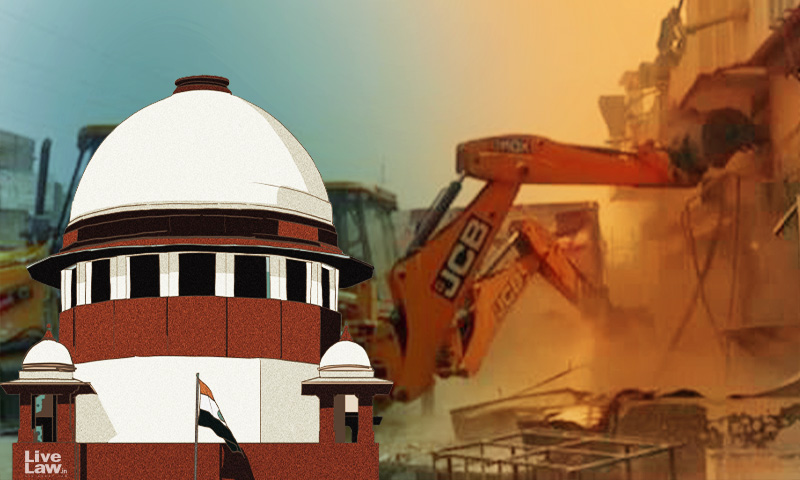Supreme Court Issues Strong Ruling Against Illegal Demolitions
In a landmark judgment, the Supreme Court of India has explicitly directed against "bulldozer actions," warning officials involved in illegal demolitions. The ruling emphasizes that those who conduct such actions contrary to judicial directives will bear personal liability for restoring properties and face potential contempt charges. This ruling marks a significant shift in upholding the rule of law and ensuring accountability among public officials.
Judicial Observations
The bench, comprising Justices BR Gavai and KV Viswanathan, underscored the necessity for accountability among public servants who overstep their authority. The Court stated, “It will also be informed that violation of any of the directions would lead to the initiation of contempt proceedings in addition to prosecution.” Furthermore, officials found responsible for demolitions that violate the Court’s orders will be liable for damages and restoration costs.
This verdict arises amidst rising concerns over arbitrary demolitions linked to alleged criminal activities, which the Court characterized as a "collective punishment" against families. The justices articulated that such actions are not only unlawful but also infringe upon the fundamental right to shelter. “The executive cannot act as a judge and punish persons by demolishing their properties because of their alleged involvement in crimes,” the Court emphasized.
Strict Guidelines for Demolition Actions
In light of the ruling, the Supreme Court has laid out a comprehensive framework for conducting demolitions. Key directives include:
- Prior Notification: Officials must issue a show-cause notice at least 15 days before any demolition action.
- Personal Hearings: A personal hearing must be conducted, allowing affected parties to present their case.
- Detailed Final Orders: The final order must provide clear reasons why demolition is the only viable option.
- Appeal Period: Execution of the demolition order must be stayed for an additional 15 days, allowing time for appeals.
- Documentation and Transparency: The entire demolition process must be videographed, and a record of involved officials maintained. Local authorities are required to create a digital portal for real-time uploads of demolition notices and orders to prevent allegations of backdating.
Ensuring Transparency and Accountability
These measures aim to promote transparency and prevent high-handed or discriminatory actions by officials. The Court noted, “For the executive to act in a transparent manner, certain binding directives need to be formulated.” This is seen as a crucial step in restoring public trust in local authorities and ensuring justice for citizens.
Broader Implications
The ruling is expected to have far-reaching implications for the judiciary’s role in curbing executive overreach. It reinforces the doctrine of separation of powers, ensuring that judicial rulings are respected and followed. This case highlights the delicate balance between law enforcement, public safety, and individual rights, a balance increasingly scrutinized in a rapidly changing socio-political landscape.
Experts believe that the judgment may also resonate within technology circles, particularly those addressing issues of digital governance and transparency. The push for a digital framework for demolition processes aligns with broader calls for tech-based accountability in various sectors, enhancing efficiency while safeguarding civil liberties.
Call to Action
As these new principles take shape, public officials and citizens alike are urged to stay informed about their rights and responsibilities. This ruling serves as a reminder of the judiciary’s role in protecting individual rights against arbitrary state power.
For further insights into this ruling, you can read the judgment here: Supreme Court Judgment – In Re: Directions in the matter of Demolition of Structures v. and Ors..
We encourage readers to share their thoughts on this judgment and its implications for public policy. Your insights can contribute to a broader discussion about the balance of power and individual rights in contemporary society.

